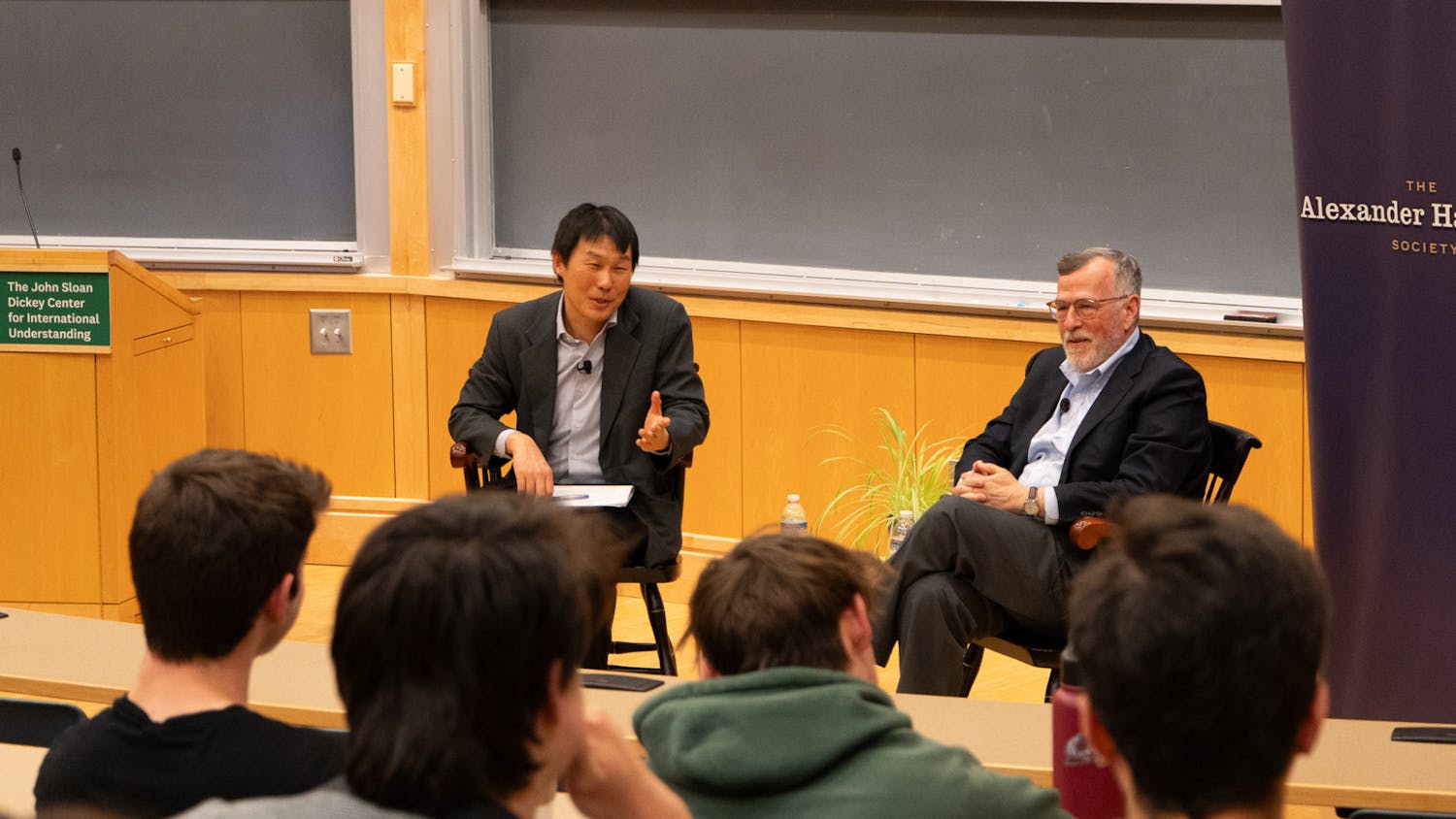Independence in Latin America is an ongoing process rather than a single event, according to scholars at the three-day Independence Effect Symposium hosted at the College this past weekend and sponsored by the Spanish and Portuguese department. From Thursday to Saturday, 25 scholars in disciplines including anthropology, literature and political science presented papers and participated in panel discussions on the effects of independence from colonial powers in Latin American countries, co-organizer and Spanish and Portuguese professor Raul Bueno said in an interview with The Dartmouth.
Latin America remains "in the process" of independence, according to Jose del Pino, chair of the Spanish and Portuguese department and co-organizer of the symposium.
"The discussion was very focused on effects, with the understanding that independence is not a monolithic event, but something with different avenues of realization and different failures," he said.
Although the symposium commemorated the bicentennial anniversary of many Latin American countries' independence, the discussions focused on analyzing the narratives and philosophical underpinnings associated with independence, del Pino said.
Two keynote speakers opened the symposium with presentations in the Rockefeller Center on Thursday evening. Carlos Malamud, history professor at the University Nacional de Educacion a Distancia in Spain, discussed the historical significance of independence in Latin American countries where the celebration of independence is currently highly politicized. New York University professor Mary-Louise Pratt argued that the struggle for independence is inherently oriented toward the future, citing the "delirious exuberance" evident in Latin American and Filipino nationalists' plans for a post-colonial socio-political order.
"Independence is typically construed as the lifting of restraint, the ability for a certain group to act in ways in which they weren't able," she said. "But I would argue that independence is actually the ability to make a radical recreation of the self."
Subsequent panel discussions, several of which occurred in Spanish, discussed the different ways in which the successes and failures of independence movements continue to influence cultural, social and political issues in Latin American countries. Scholars from various disciplines examined the fate of indigenous and African-American groups in post-colonial societies during a discussion on independence, subalternity and globalization on Saturday afternoon in the Haldeman Center.
Even after colonialism has been abandoned, historically disenfranchised people remained "trapped," as new states first excluded them from the benefits of independence and then taxed them to honor debts to foreign countries, Juan Aranzadi, an anthropologist at the Universidad de Educacion a Distancia, said.
Indigenous people who were originally allies with Argentinians of European descent in the struggle for independence from Spain quickly became "unnecessary" once Argentina established itself as a "European nation in South America," Bueno, who moderated the discussion, said.
Rather than disappearing after independence, issues of "oppression and misery" have remained central to the creation of a national identity in Latin American countries, Bueno said.
"By converting misery into epic literature, literary art manages to allegorize, and allegorizing conveys the essence of nationhood," Bueno said. "Those who suffer become heroes, and in time not only literary heroes, but national heroes."
Hernan Fernandez-Meardi, a Spanish and humanistic studies professor at the University of Wisconsin, discussed literature's ability to represent the disenfranchised.
A panel on Friday morning in the Haldeman Center explored cross-cultural influences and the effects of independence movements, according to Beatriz Pastor, a Dartmouth Spanish and Portuguese professor. Pastor presented her paper on utopian thinking during times of social upheaval, while professor Jos Ignacio Lpez Soria from the Universidad Nacional de Ingeniera in Peru traced key Latin American nationalist ideals of autonomy and equal rights to ideas in Enlightenment philosophy, Pastor said.
"This symposium is not about taking a narrow view of independence, but looking at it as a big wave, with multiple causes and ripples throughout the world," she said.
The entire faculty of the Spanish and Portuguese department collaborated to design the symposium, making it both interdisciplinary and intergenerational, Del Pino said. The organizing committee invited an international coterie of scholars who are "very, very well respected in their fields," he said.
Generating meaningful discussion between established authorities and up-and-coming scholars was one of the symposium's primary goals, according to Bueno.
"We wanted to see how new generations approach old themes and old subjects," he said.
With the support of the Office of the Provost, the Spanish and Portuguese department plans to publish and distribute transcribed discussions of the symposium to universities across the world, Del Pino said.



